It feels more difficult than ever to be active these days, with our daily routines changing and so many reasons to stay indoors. However, doctors and health experts agree that the physical and mental health benefits of regular exercise are immense. We need regular exercise now more than ever.
And, as the weather warms up, it’s easier than ever to get out and start jogging. Working up to a 5k run can be daunting if it’s been months since you last engaged in regular cardio exercise, but fitness expert Mo Hagan says it’s actually a reasonable goal.
No matter where you’re starting, Hagan advises following a proven formula to build stamina for long term success, rather than just going out and running 5k right away.
“The best formula is a day-on-day off approach to running,” says Hagan. She outlined a sample weekly formula:

Warmup
Hagan says warming up before each run is very important. However, it doesn’t have to be static stretching. Some suggested warmups include:
- Getting out and walking briskly
- Long strides
- Arm circles or overhead reaches
- Side-to-side lunges
- Any mobility movements that get your joints moving and muscles lengthening
Cross-training
Cross-training exercises are anything that helps you build your fitness, aerobic and strength, says Hagan. This could be:
- Cycling
- Swimming
- Time on a spin bike
- Jumping rope
- Squats and lunges
- Pushups/situps
- Core exercises like planks or hovers
- Squat lunges
Stretch before or after a run?
“It’s best to stretch after [your run], when your muscles are warm, and after you’ve put stress on your body,” says Hagan. “Because it acts to help you in your recovery and to stretch out the tight muscles that you use in the training.”
She advises everyone should spend some time in each stretching position and make time to stretch every day, even when you're taking a day off from running. It’s especially good for anyone who spends a lot of time sitting at a desk.
7-week training calendar
Week 1
Hagan says this is the week where you’ll experience euphoria and want to “go hard.” She advises you to temper this enthusiasm at this stage to avoid injury.
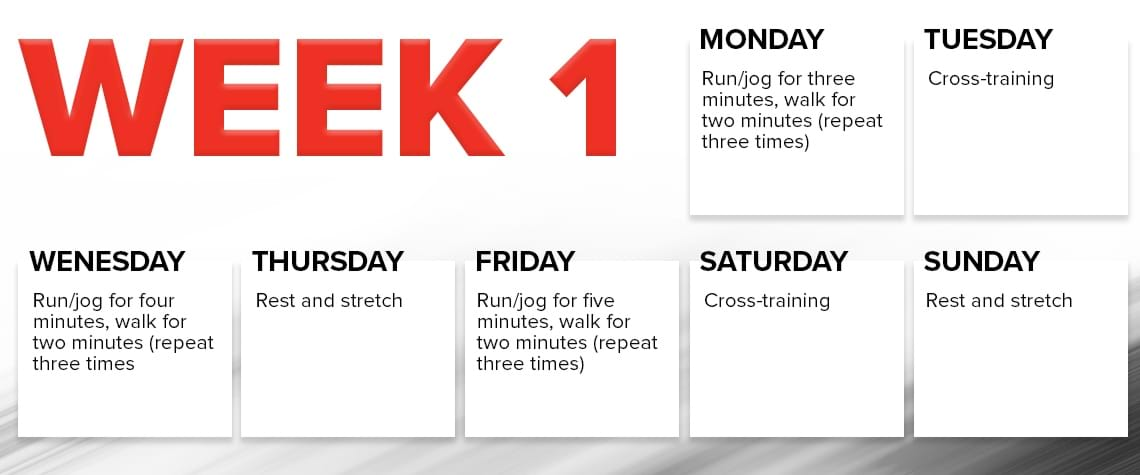
Week 2
This is the week you’ll start to feel a bit tired because your body’s adapting to this new schedule.
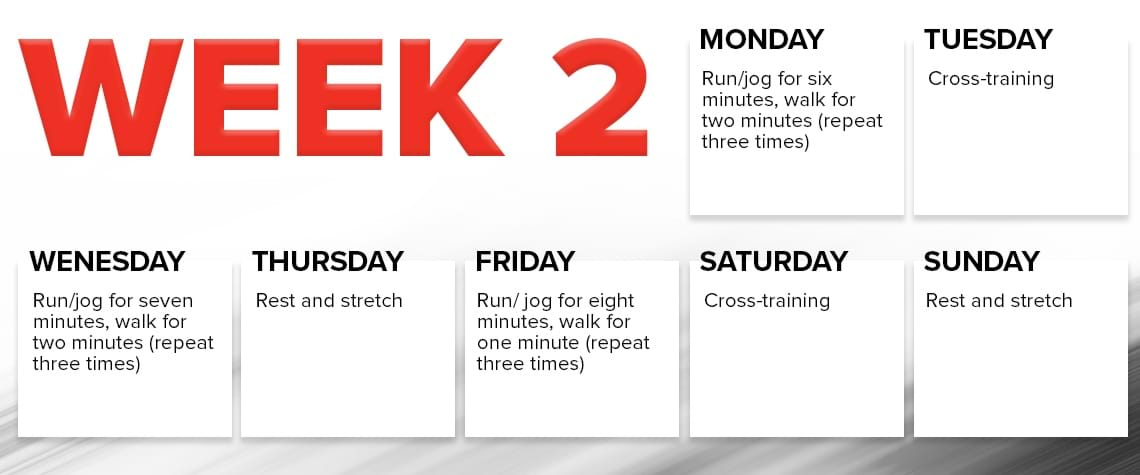
Week 3
*Milestone Week: This is where you really start to pick up the workload, according to Hagan. You also add in a few extra minutes of effort this week. Hagan says this is the week you have you’ll have to “push through.”
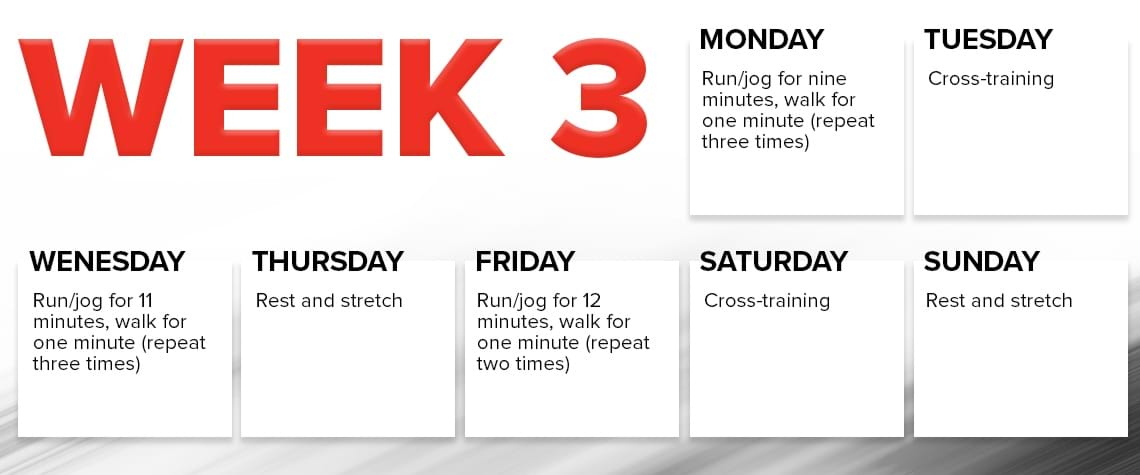
Week 4
*Milestone: The formula changes a bit this week. This is the week that you see your total exercise time close to 30 minutes. You’ll start to really see and feel changes in your body on week 4.
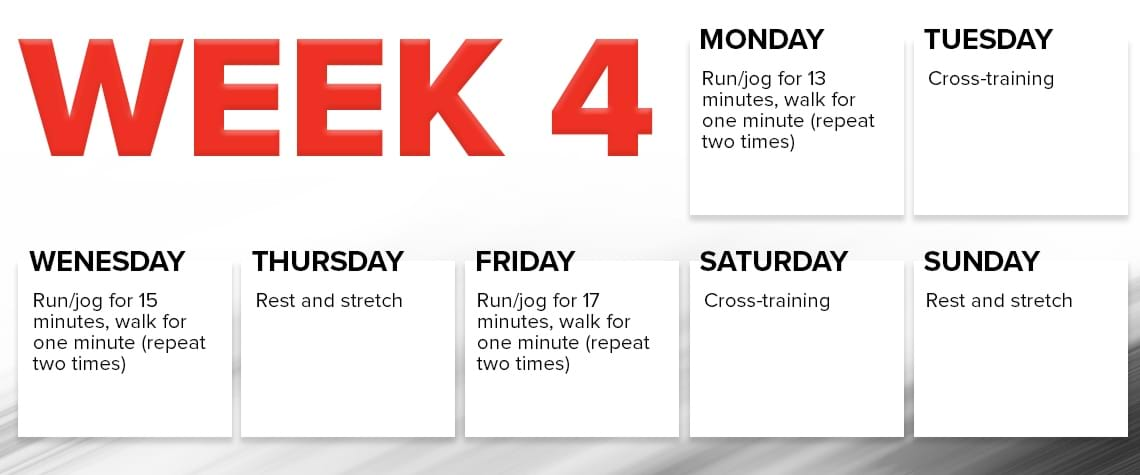
Week 5
Hagan says to focus on distance this week, and also on perfecting your routine.
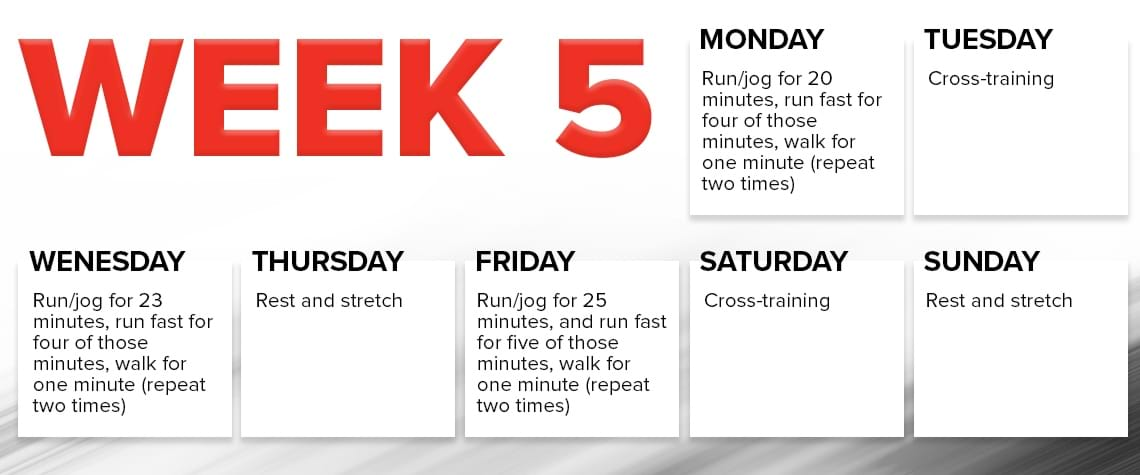
Week 6
*Milestone: This is where you’ll notice you’ve built efficiency, and you don’t struggle as much in the last kilometre.
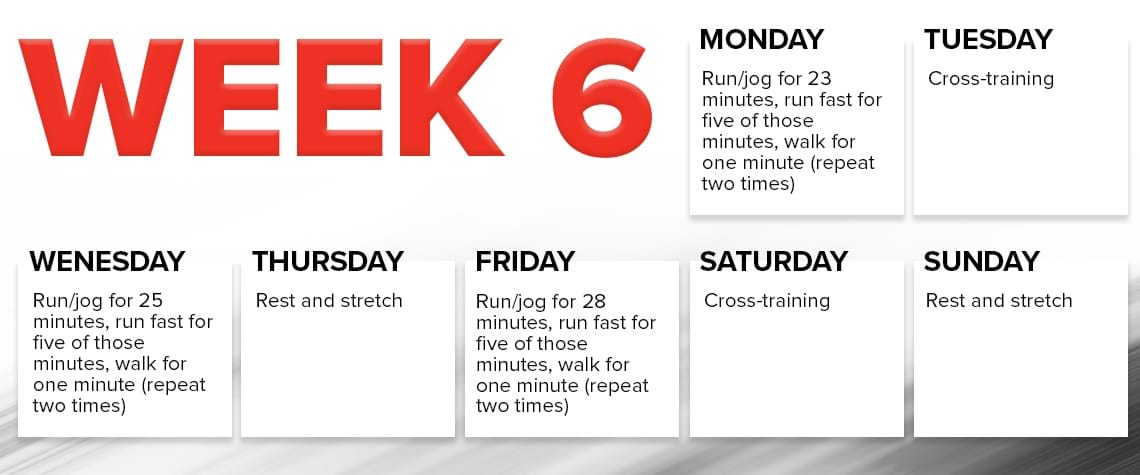
Week 7
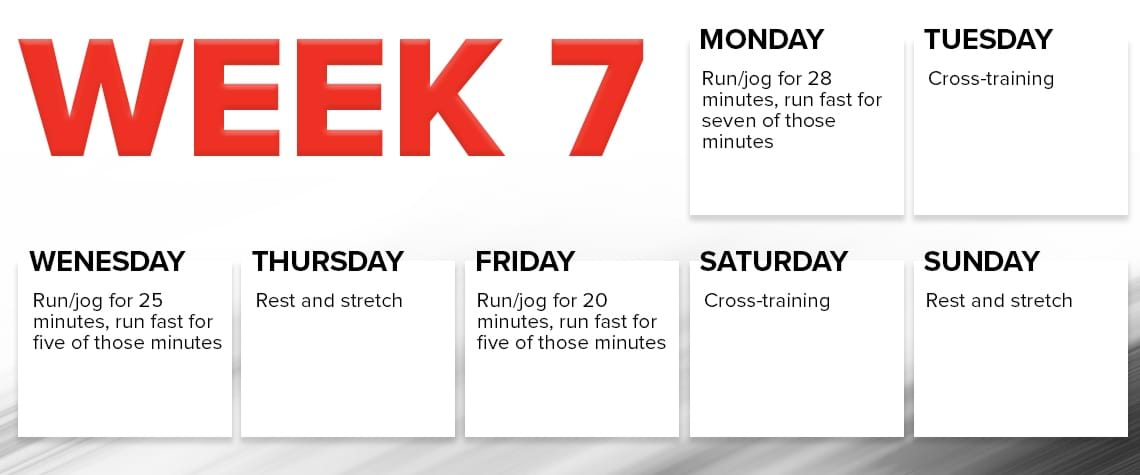
If your goal is to do a 5k race after this week, then Hagan advises you to back off and slow down a bit in preparation.
